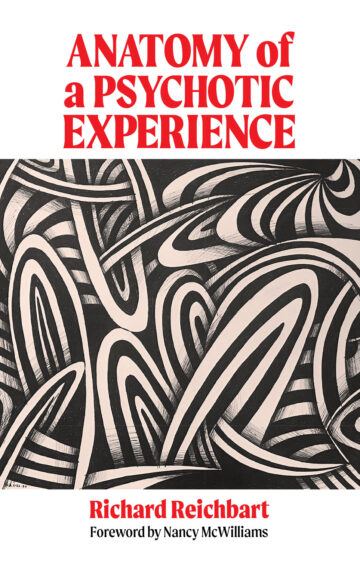In this brave and unflinchingly honest memoir, the eminent senior psychoanalyst Richard Reichbart takes us with him when as a young man he descended into madness and then recovered his sanity through psychoanalysis. A law school graduate in search of something or someone he had lost, he wanders into a years-long abyss of hidden meanings and uncertain identity. Frightened and alone, he has the good fortune of finding the help he needs. This memoir of madness is unique in its multiple perspectives. . . . Some readers find it uncomfortable to confront the fact that a healer of minds, a psychoanalyst, had once been so troubled. But I can assure those readers Dr. Reichbart is not alone, and his story is a powerful testament to the curative power of a psychoanalytic relationship. — Michael Moskowitz, Ph.D.
Reviews
“In an age in which truth-telling has been under siege, Richard Reichbart — scholar, teacher, author, President of a major psychoanalytic institute — tells a truth many would choose to hide. This memoir offers his own personal experience with psychosis over a three year period when he was in his twenties. He graphically portrays both the feel and the logic of a psychotic episode foreshadowed by his separation from college and from law school and ultimately precipitated by the loss of his beloved grandfather. His search for his identity led him to the Navajo reservation which was ‘ideal for the nurturance of my psychosis.’ He gives testimony to the help he received from two outstanding psychoanalysts who worked with him to unpack and weave together the effects of childhood events and fantasies on his adult personality. A book . . . that demonstrates the possibility of psychoanalyzing psychosis.” — Janice Lieberman, Ph.D.
“The rawness of the clinical material in this narrative awakens the . . . reader in an exceptionally enlightening way that reminds her of the importance of in-depth narratives of psychic experiences. Rarely do we have clinically relevant descriptions by white men of their life experiences that include object relations with women of color” — Annie Lee Jones, Ph.D.
From the introduction:
“In the small body of writing by individuals helped by talk therapy to emerge form psychotic conditions, this book is unique. The author was psychoanalytically knowledgeable when he wrote his original reflections and since then, his psychodynamic sophistication and specific understanding of his own psychology have deepened immeasurable. I know of no other autobiographical account that includes the psychodynamically informed understanding of the affected person shortly after the period of psychosis and then decades later, when the author has added what was omitted, not fully understood, or recognized only over the years since the psychosis.” — Nancy McWilliams, Ph.D.
